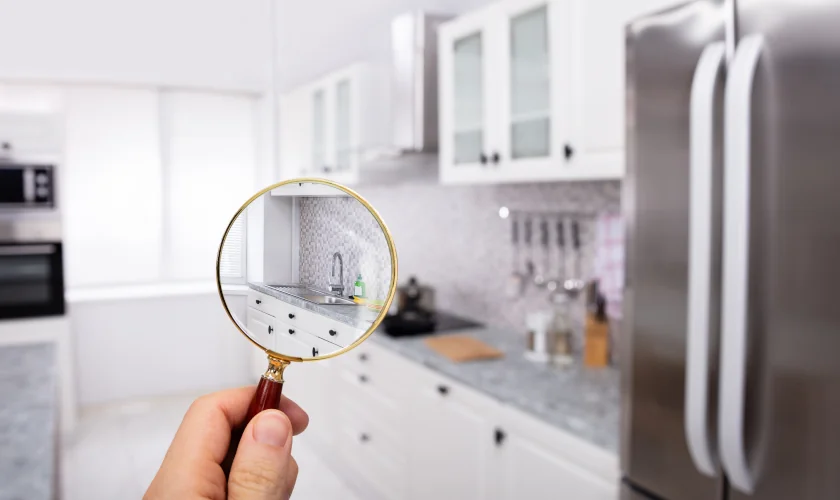
The Ultimate Guide to Home Inspections for Buyers and Sellers
The Ultimate Guide to Home Inspections for Buyers and Sellers
Benefits and Pitfalls of Home Inspections
Buying or selling a home is a significant decision in one’s life. It’s a process that involves numerous steps, including one critical element that should never be overlooked—home inspections. In this comprehensive guide, we’ll explore the benefits and pitfalls of home inspections, why they are essential, how to choose the right home inspector, and what to do if you find yourself in disagreement with the inspection report. A good real estate broker will make sure to assist you in the selection process. However, ultimately as the home buyer, you will make the final decision.
Benefits:
- Uncover Hidden Issues: A home inspection reveals problems that may not be visible during a casual viewing. It can identify structural, electrical, plumbing, and other issues that could be costly to repair later.
- Safety Assurance: Home inspections identify potential safety hazards, such as faulty wiring, mold, or structural weaknesses, ensuring the safety of the occupants.
- Informed Decision-Making: Armed with the inspection report, homeowners can make informed decisions about the property. They can choose to negotiate with the seller for repairs or a lower price, or even decide not to purchase the property if the issues are too severe.
- Protect Your Investment: A home is a significant investment, and a thorough inspection helps protect that investment by preventing costly surprises down the road.
- Peace of Mind: Knowing the condition of the property gives homeowners peace of mind, reducing the stress associated with the purchase.
Pitfalls:
- Cost: Home inspections come with a fee, which can be an additional expense for potential homeowners.
- Not Comprehensive: Some issues may remain hidden, as inspectors can’t see through walls or under floors, and some defects may not be immediately apparent.
- Delay in Closing: The inspection process can add time to the home-buying process, potentially delaying the closing.
- Seller Resistance: Sellers may be unwilling to make repairs or lower the price based on inspection findings, leading to negotiation challenges.
Why a Home Inspection Is Important for Homeowners
A home is more than just a place to hang your hat; it’s a sanctuary, an investment, and a dream realized. Homeownership is a significant milestone in one’s life, but it’s a decision that carries a heavy responsibility. This is where a home inspection comes into play as a guardian of your investment.
Beyond the obvious benefits of uncovering hidden issues and ensuring safety, consider this: homes are complex structures with countless interwoven components, and even a minor problem can cascade into a major issue if left unchecked. A home inspection is your proactive step to protect your family, your investment, and the future you’ve envisioned in your new home.
A home inspection is vital for homeowners because it:
- Uncovers Hidden Issues, preventing costly surprises.
- Ensures Safety, identifying potential hazards.
- Informs Decision-Making, empowering buyers to make wise investments.
- Protects Your Investment, by preventing costly future repairs.
- Brings Peace of Mind, reducing the stress of home buying.
Choosing a Suitable Home Inspector
In this guide to home inspections, we highlight that selecting the right home inspector is akin to choosing a partner for your home-ownership journey. The inspector is not merely a professional who points out flaws. Conversely, they are your guide through the labyrinth of bricks and beams, wiring, and plumbing.
What sets a great home inspector apart is their ability to convey their findings clearly. In addition, they help you understand the significance of each discovery. It’s about more than just the report. Indeed, it’s the peace of mind that comes from knowing your inspector is not just an expert but a communicator who empowers you to make informed decisions.
Sources to Consider:
- Check Qualifications: Look for certified inspectors from reputable organizations.
- Ask for References: Seek recommendations from real estate agents, friends, or family.
- Research Online: Read reviews on websites like Angie’s List and Yelp.
- Interview Multiple Inspectors: Compare their expertise, communication, and approach.
- Request Sample Reports: A well-organized report is a sign of a thorough inspector.
- Verify Insurance and Licensing: Ensure the inspector is properly insured and licensed in your state.
- Ask About Experience: Choose an inspector familiar with the type and age of the property.
- Attend the Inspection: If possible, attend to ask questions and get firsthand insights.
- Cost Consideration: Request cost estimates from multiple inspectors and compare their fees.
- Review the Contract and Agreement: Ensure it outlines the scope, coverage, and timeline.
What to Do If You Disagree with the Inspection Report
Disagreements with an inspection report can be a source of tension, but they can also be opportunities for clarity and resolution. The inspector’s findings are not the final word. Thus, are a starting point for a dialogue. The key to addressing disagreements lies in open communication and a willingness to find common ground.
Remember, the goal is not just to resolve the immediate issues but to ensure that the home buying or selling process moves forward with confidence and transparency. It’s a reminder that real estate transactions are not just about buildings and contracts; they are also about relationships and trust.
Consider These Options:
- Discuss the Concerns: Open communication between the buyer and seller is crucial.
- Consult with the Inspector: Contact the home inspector to clarify or discuss specific points in the report.
- Negotiate Repairs or Prices: Use the inspection report to negotiate with the seller.
- Request a Re-inspection: If repairs have been made, request a re-inspection to verify.
- Seek a Second Opinion: Hire a second inspector for an independent assessment if necessary.
- Consult Legal Advice: In some cases, legal assistance may be required.
- Mediation: A neutral third party can facilitate discussions. Consequently, helping both parties reach a resolution.
- Contingency Clauses: Buyers often include contingency clauses in their purchase agreements.
A Pivotal Step to Closing
A home inspection is a pivotal step in the home-buying process. Consequently, It protects your investment, ensures safety, and provides peace of mind. As a result, choosing the right home inspector and effectively addressing disagreements with the inspection report are essential elements of a successful real estate transaction. By following the steps outlined in this guide, you can make informed decisions. Moreover, you can confidently navigate the world of home inspections. If you’re working with a REALTOR, make sure they’re providing you with proper guidance on working with a good home inspector.
KASHMIRI REALTY & PROPERTY MANAGEMENT
Marisol Kashmiri, BROKER/REALTOR© in the Jacksonville, FL location 904-551-4955 (Office)


